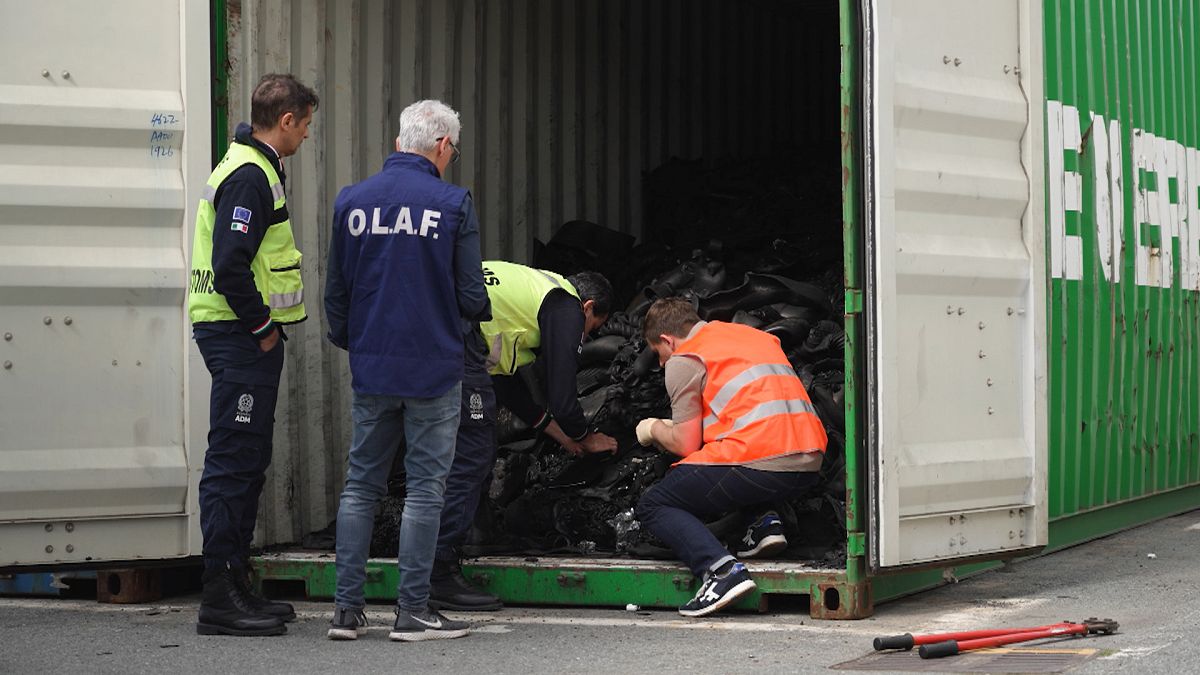In the port of Genoa, the Italian Customs and the European Anti-Fraud Office (OLAF) are stressing the importance of international cooperation in the fight against illegal waste trafficking.
New European regulations on the cross-border transport of waste came into force on 20 May. They provide for tougher rules on the waste exports outside the European Union and aim at favoring recycling within member states. It is estimated that a third of international waste shipments are illegal.
“The important thing is not to block a single container, but to broaden the investigation and find the organisation behind it,” Andrea Biggi, a senior officer with the antifraud section of Italy’s Customs Agency tells Euronews. “But to do that, we need the cooperation of all the police forces, not just national, not just non-European, but above all European. It is really the Union of European police forces that will enable us to halt this type of trafficking, and in this sense, OLAF can make a huge contribution.”
Investigation and prevention
“We’ve got two main goals,” Biggi continues. “The first is investigate the network, but also prevent the exports. For environmental cases, this is a key point because when the damage is done, it’s very complicated to recover everything. It’s essential to create a general awareness, and to harmonize the level of the controls at a European level, and to coordinate the control with the countries of destination. If we are able to put together these three main points, we can reach the goal to tackle the phenomenon.”

